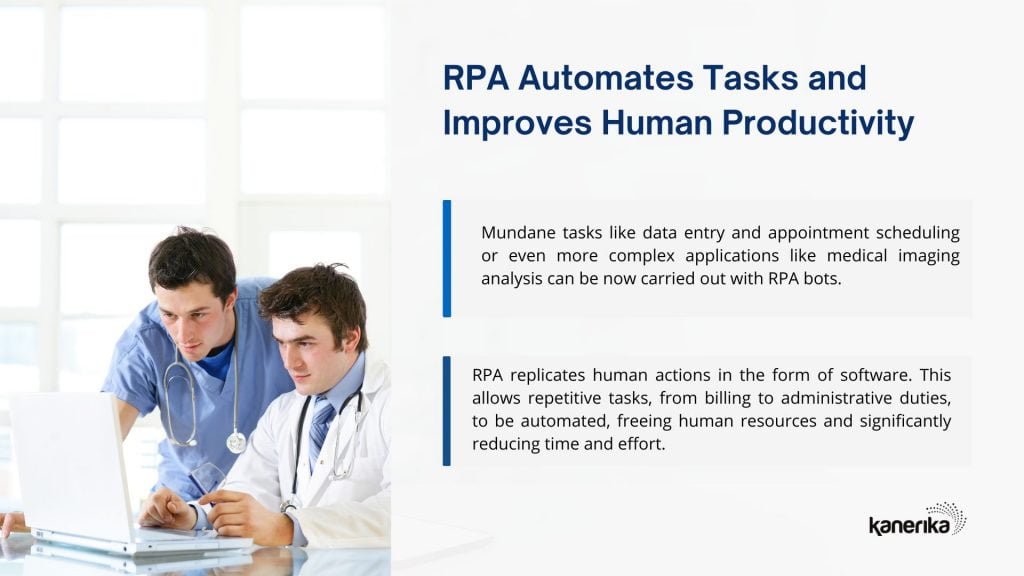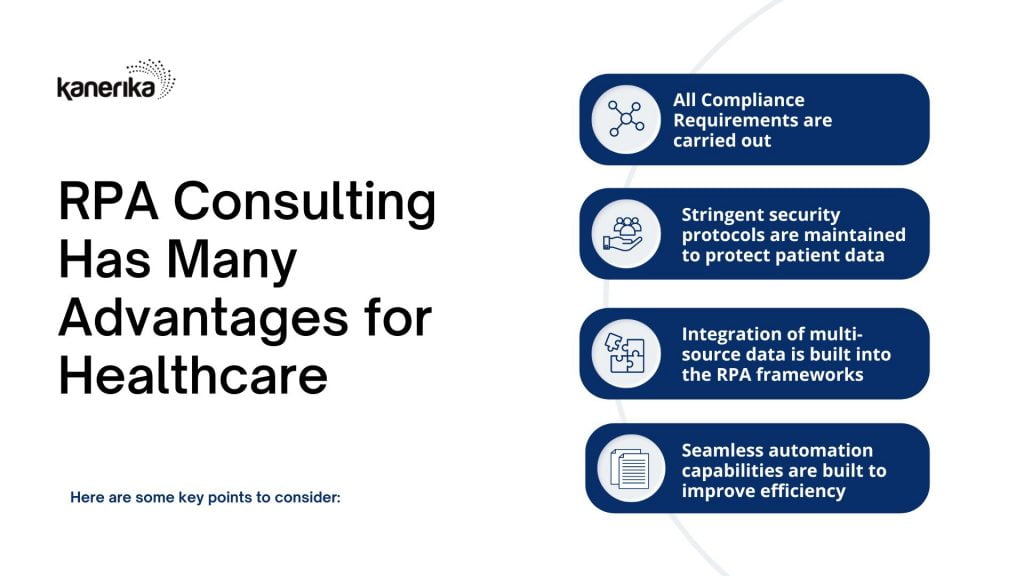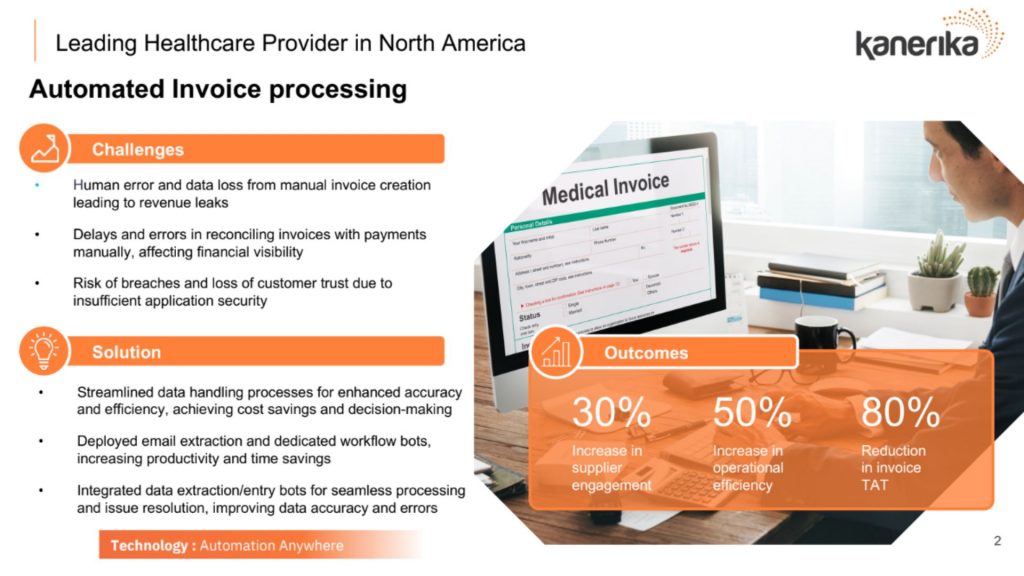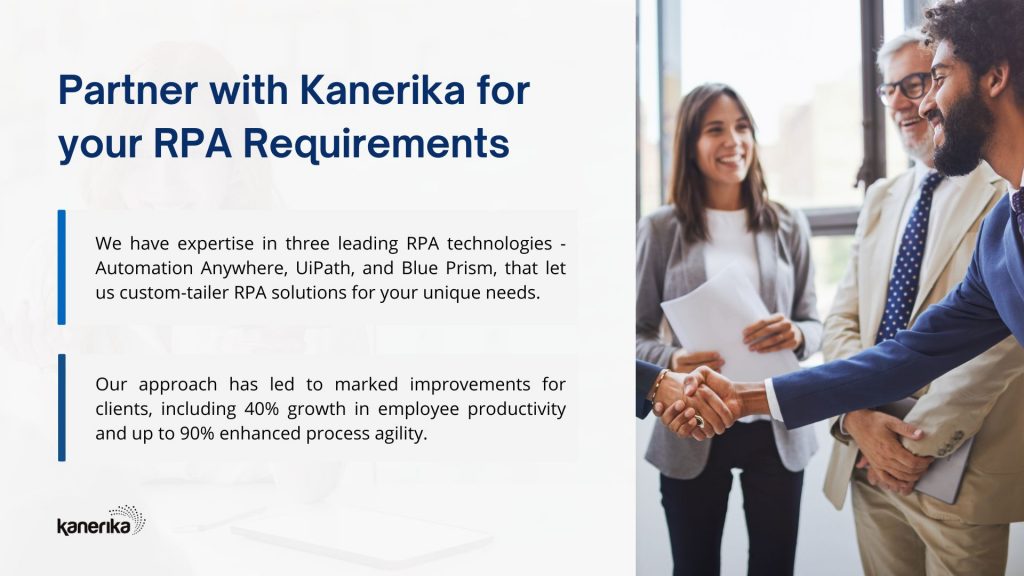“It is not the strongest of the species that survives, nor the most intelligent, but the one most responsive to change.” – Charles Darwin.
This timeless principle finds renewed relevance in the healthcare sector, which is undergoing a transformative shift through Robotic Process Automation (RPA). As healthcare providers grapple with the dual challenges of cost optimization and efficient resource management, RPA Consulting emerges as a game-changing solution that aims to solve many pressing challenges the healthcare industry faces today.
According to Gartner, 50% of U.S. healthcare providers are projected to invest in RPA within the next three years. With the RPA market in healthcare expected to reach a staggering $8.89 billion valuation by 2028, we stand at the cusp of a new era. This blog aims to explore the transformative potential of RPA Consulting in shaping the future of healthcare.
Table of Contents
- Why RPA Consulting is The Need of the Hour for Healthcare
- How Healthcare Businesses Can Select the Right RPA Consulting Partners
- Insights for Decision-Makers: RPA Consulting is a Constant Process
- Automation & Security: RPA Consulting Necessities
- Best Practices for Successful Collaboration
- Exploring Kanerika’s Success Stories with RPA Consulting
- Transform Healthcare with Kanerika’s RPA Consulting
Why RPA Consulting is The Need of the Hour for Healthcare

Robotic Process Automation (RPA) consulting empowers businesses to streamline their operations by designing, developing, and implementing automation through RPA software.
By creating RPA bots that interface with various applications, they replicate human actions in software form. This allows mundane and repetitive tasks, from billing to administrative duties, to be automated, freeing human resources and significantly reducing time and effort.
According to a study, advancements in technology anticipate that RPA will soon be applied to intricate tasks such as medical imaging using machine learning. This not only improves operational efficiency but also frees up medical professionals to focus on patient-centric tasks.
RPA Consulting also includes identifying specific areas in healthcare that are ripe for automation—mundane tasks like data entry and appointment scheduling or even more complex applications like medical imaging analysis.
By leveraging the expertise of RPA consultants, healthcare providers can navigate the complexities of automation, ensuring a smoother transition into this new era of automated AI-powered medical care. With the RPA market expected to grow to $22 billion by 2025, the potential for transformative change is not just promising—it’s inevitable.
How Healthcare Businesses Can Select the Right RPA Consulting Partners

As the RPA market in healthcare is poised to reach an astounding $14.18 billion by 2032, the urgency for healthcare providers to adopt automation solutions is apparent. The decision to select an RPA consulting firm is not just a technological step but a strategic leap that can significantly impact patient care, operational efficiency, and regulatory compliance.
Compliance is the backbone of any technological adoption in a sector governed by stringent regulations like HIPAA and GDPR. The chosen RPA Consulting firm must offer solutions strictly adhering to these laws. This includes encrypting and anonymizing data and providing comprehensive audit trails and reporting mechanisms.
Naturally, patient data is of the utmost priority. Forbes underscores the criticality of data security and privacy in healthcare, emphasizing that RPA solutions must restrict data access to authorized users only. The consulting firm you choose should offer robust security protocols that safeguard the integrity and confidentiality of patient information, thereby fortifying the trust fundamental to healthcare.
Most importantly, the RPA consulting firm should excel in seamlessly integrating these disparate systems without disrupting existing workflows. The ability to handle both structured and unstructured data is crucial, ensuring that data quality remains uncompromised during the automation process.
Insights for Decision-Makers: RPA Consulting is a Constant Process
A well-defined roadmap is essential for decision-makers navigating the complex landscape of RPA implementation in healthcare. Starting with a small-scale pilot test can offer invaluable insights into the effectiveness and compatibility of the chosen RPA solution. But the journey doesn’t stop there; early engagement with key stakeholders, including legal teams, is crucial.
This proactive approach helps preemptively address potential regulatory hurdles, ensuring that the RPA strategy is compliant and effective.
Moreover, the work isn’t done once the system is up and running; continuous assessment is key. Regular evaluations of the RPA implementation’s performance and ROI allow for timely adjustments, ensuring that the strategy remains aligned with organizational goals and delivers tangible results.
Automation & Security: RPA Consulting Necessities
In the rapidly evolving landscape of healthcare, the role of technology as a catalyst for change is undeniable. Yet, the true essence of healthcare remains rooted in its human touch, in the compassionate care extended to patients. Collaboration with an RPA Consulting firm finds its most profound impact at this intersection of technology and humanity.
RPA can automate tasks like appointment scheduling and claims management, freeing healthcare professionals to focus on patient care. Moreover, RPA can significantly improve operational efficiency, directly correlating with enhanced patient experiences.
Additionally, RPA solutions can strengthen cybersecurity measures, a critical factor given that the healthcare industry spends an estimated $2.1 billion on poorly executed data management. Ethical considerations, such as data privacy and compliance, are non-negotiable and must be at the forefront of any RPA implementation.
Best Practices for Successful Collaboration
The first step in a successful RPA implementation is thoroughly examining existing workflows. This isn’t just a recommendation; it’s a necessity. By understanding your current processes, you can identify the most impactful areas for automation, as advised by experts like Itransition.
Collaboration doesn’t stop at the contract between the healthcare provider and the RPA Consulting firm. It extends to all stakeholders, including patients and regulatory bodies. Their input is crucial for a well-rounded RPA strategy that addresses real-world needs and compliances.
Finally, a phased approach is recommended for the actual implementation. This allows for adjustments based on real-world feedback, minimizing disruptions and maximizing effectiveness.
Exploring Kanerika’s Success Stories with RPA Consulting

At Kanerika, we’ve directly experienced the transformative impact of RPA Consulting in healthcare, showcasing a remarkable success story with a leading extended healthcare provider in North America.
This client struggled with the manual management of invoices dispatched from over 30 remote centers. Typically, in PDF formats, a central team of Accounts Payable (AP) specialists manually processed the invoices. This method was not only labor-intensive but also riddled with inefficiencies, resulting in delayed or missed payments and complex refund procedures.
Numerous challenges arose. Remote staff, lacking IT expertise, found it difficult to navigate the intricacies of invoice data entry. Furthermore, the absence of a structured application security configuration rendered the data invisible across centers, initiating a tedious and error-prone process.
Kanerika revolutionized the client’s operations with its RPA implementation, proving to be a game-changer. Our RPA team devised a solution that notably enhanced transparency, fostering improved supplier engagement. Consequently, the client managed to optimize their existing AP investments, securing a maximized ROI.
Our scalable RPA solutions simplified the onboarding and processing of invoices, minimizing manual errors and reducing reliance on human intervention. This transformation led to a substantial increase in both customer and employee satisfaction.
This partnership teaches us that the benefits of RPA extend beyond its technical facets. It highlights the necessity of crafting solutions that merge technological advancement with user-friendliness, particularly for non-IT-savvy staff.
Moreover, automation significantly bolsters data integrity, diminishing the likelihood of data loss and errors. Ultimately, we discerned that RPA transcends being a mere technological tool, emerging as a strategic asset capable of fostering expansive operational efficiencies and nurturing improved stakeholder relationships.
Transform Healthcare with Kanerika’s RPA Consulting

At Kanerika, we don’t see RPA as a mere afterthought; it’s the precursor to your digital transformation journey in healthcare. We root our unique approach in delivering scalable and sustainable automation solutions that go beyond eliminating monotonous tasks.
We aim to free up your healthcare professionals for value-added, domain-specific work, enhancing both operational efficiency and patient care. Our clients have achieved remarkable results, including 25-70% cost efficiency. Alongside, 70-90% improved process agility, and a 40% growth in employee productivity across multiple industries.
Don’t just adapt to the future—shape it. We invite you to explore unparalleled RPA opportunities with Kanerika.
Book a free RPA consultation with us today!
Follow us on LinkedIn and Twitter for insightful industry news, business updates and all the latest data trends online.









